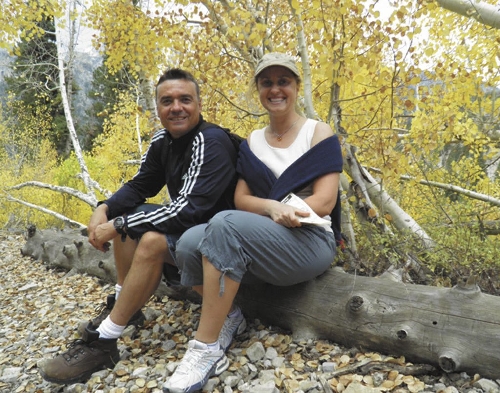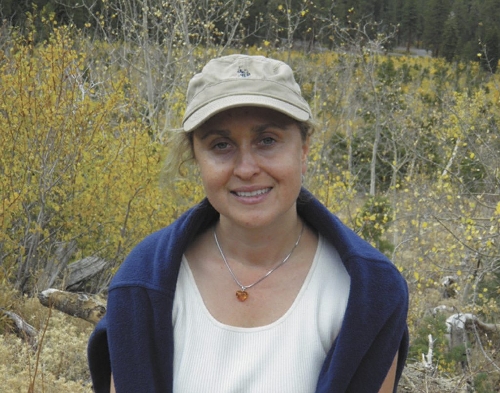Woman struck by falling rock at Mount Charleston remains in critical condition



A Las Vegas woman remained in critical condition at University Medical Center on Tuesday, 10 days after falling rocks struck and fractured her skull on a hike in the Mary Jane Falls area of Mount Charleston.
“It can go either way,” said Janusz Karbowniczek in an interview about his wife’s prognosis.
Aleksandra Karbowniczek was just 20 feet from the falls when three rocks fell from an overhang. The largest, the size of a pineapple, struck “right on top of her head,” her husband said.
Janusz Karbowniczek, a Web designer at the University of Nevada, Las Vegas, described his wife’s injuries as “harrowing.”
She was airlifted off the mountain about 5 p.m. June 5, roughly 30 minutes after the incident.
“The first 10 hours at UMC were extremely difficult,” her husband said in an online posting at www.polonialasvegas.com, a website that caters to the valley’s Polish community.
Though still listed in critical condition and in a medically induced coma, Aleksandra Karbowniczek, 41, was stable, her husband said.
He said rescuers from the Nevada Division of Forestry and Clark County Volunteer Fire Station 81 were highly professional retrieving his wife. He credited their “no wasted movement” approach for saving her life.
Mary Jane Falls is at the end of a heavily walked trail off of state Route 157.
Karbowniczek said there was evidence of a recent avalanche in the area, and he suspects the rocks that fell were deposited between the cracks of the overhang.
“The weather warmed up, and the snow melted, the rocks fell,” he theorized.
Falling rocks are not rare in the mountains, said Mike Rowan with the U.S. Forest Service, but they rarely hit people.
“I’ve spent 20 years with the Forest Service and have never heard of an incident like this,” he said, adding that avalanches and falling trees are far more likely to cause injuries or death in the forest.
He also said most injuries occur at campsites, not on the trail. “That’s where the hazards are,” he said. “People love to camp under trees. I always tell them to look at the tree and its limbs.”
Rowan also said people camping in avalanche chutes invite trouble, but like Karbowniczek, he thinks Aleksandra Karbowniczek was in the wrong place at the wrong time.
Routine maintenance on the trails is performed, but it is unlikely anyone could have reached the rocks that slipped through a crack in the overhang and struck her, he said. The first 10 hours after the accident were terrible, Karbowniczek said. “They, her doctors, didn’t think she would survive, but she fought very hard.”
By the next day, he said, his wife was moving her extremities and reacting to light.
Surgery was performed to reduce pressure on her brain, and a medical device is being used to keep it down, he said.
Karbowniczek has been off work since the incident, staying by his wife’s bedside for the most part. Their two sons, Sebastian and Alex, and other relatives are helping him cope.
“I believe her prognosis is good. I believe her brain was not injured. They can work with the (broken) bones as long as the brain is OK.”
Contact reporter Doug McMurdo at dmcmurdo@reviewjournal.com or 702-224-5512.












